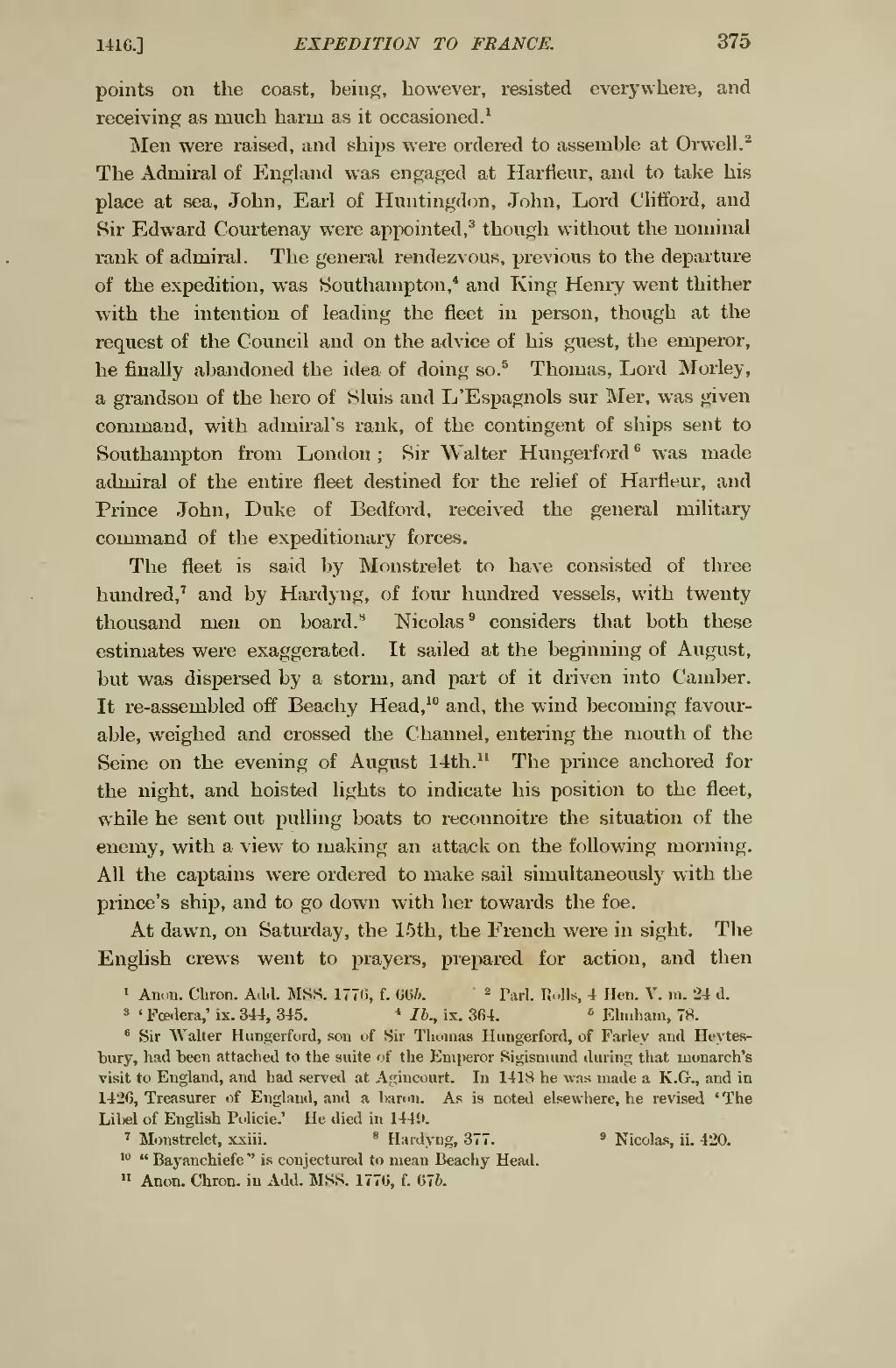points on the coast, being, however, resisted everywhere, and receiving as much harm as it occasioned.[1]
Men were raised, and ships were ordered to assemble at Orwell.[2] The Admiral of England was engaged at Harfleur, and to take his place at sea, John, Earl of Huntingdon, John, Lord Clifford, and Sir Edward Courtenay were appointed,[3] though without the nominal rank of admiral. The general rendezvous, previous to the departure of the expedition, was Southampton,[4] and King Henry went thither with the intention of leading the fleet in person, though at the request of the Council and on the advice of his guest, the emperor, he finally abandoned the idea of doing so.[5] Thomas, Lord Morley, a grandson of the hero of Sluis and L'Espagnols sur Mer, was given command, with admiral's rank, of the contingent of ships sent to Southampton from London; Sir Walter Hungerford[6] was made admiral of the entire fleet destined for the relief of Harfleur, and Prince John, Duke of Bedford, received the general military command of the expeditionary forces.
The fleet is said by Monstrelet to have consisted of three hundred,[7] and by Hardyng, of four hundred vessels, with twenty thousand men on board.[8] Nicolas[9] considers that both these estimates were exaggerated. It sailed at the beginning of August, but was dispersed by a storm, and part of it driven into Camber. It re-assembled off Beachy Head,[10] and, the wind becoming favourable, weighed and crossed the Channel, entering the mouth of the Seine on the evening of August 14th.[11] The prince anchored for the night, and hoisted lights to indicate his position to the fleet, while he sent out pulling boats to reconnoitre the situation of the enemy, with a view to making an attack on the following morning. All the captains were ordered to make sail simultaneously with the prince's ship, and to go down with her towards the foe.
At dawn, on Saturday, the 15th, the French were in sight. The English crews went to prayers, prepared for action, and then
- ↑ Anon. Chron. Add. MSS. 1776, f. 66b.
- ↑ Parl. Rolls, 4 Hen. V. m. 24 d.
- ↑ 'Fœdera,' ix. 344, 345.
- ↑ Ib., ix. 364.
- ↑ Elmham, 78.
- ↑ Sir Walter Hungerford, son of Sir Thomas Hungerford, of Farley and Heytesbury, had been attached to the suite of the Emperor Sigismund during that monarch's visit to England, and had served at Agincourt. In 1418 he was made a K.G., and in 1426, Treasurer of England, and a baron. As is noted elsewhere, he revised 'The Libel of English Policie.' He died in 1449.
- ↑ Monstrelet, xxiii.
- ↑ Hardyng, 377.
- ↑ Nicolas, ii. 420.
- ↑ "Bayanchiefe" is conjectured to mean Beachy Head.
- ↑ Anon. Chron. in Add. MSS. 1776, f. 67b.

